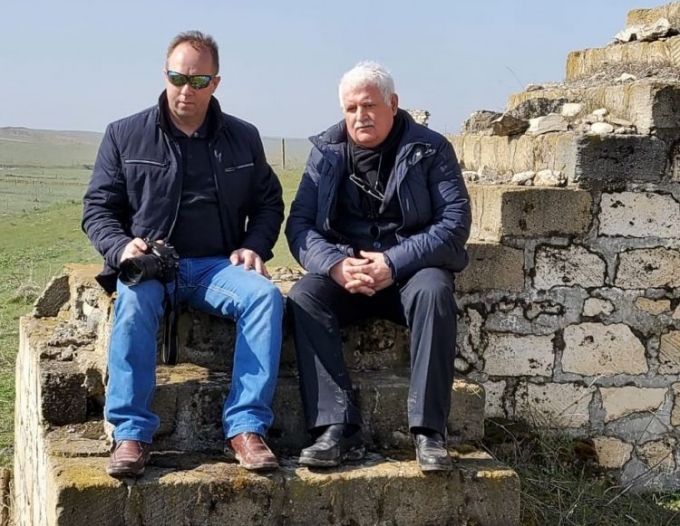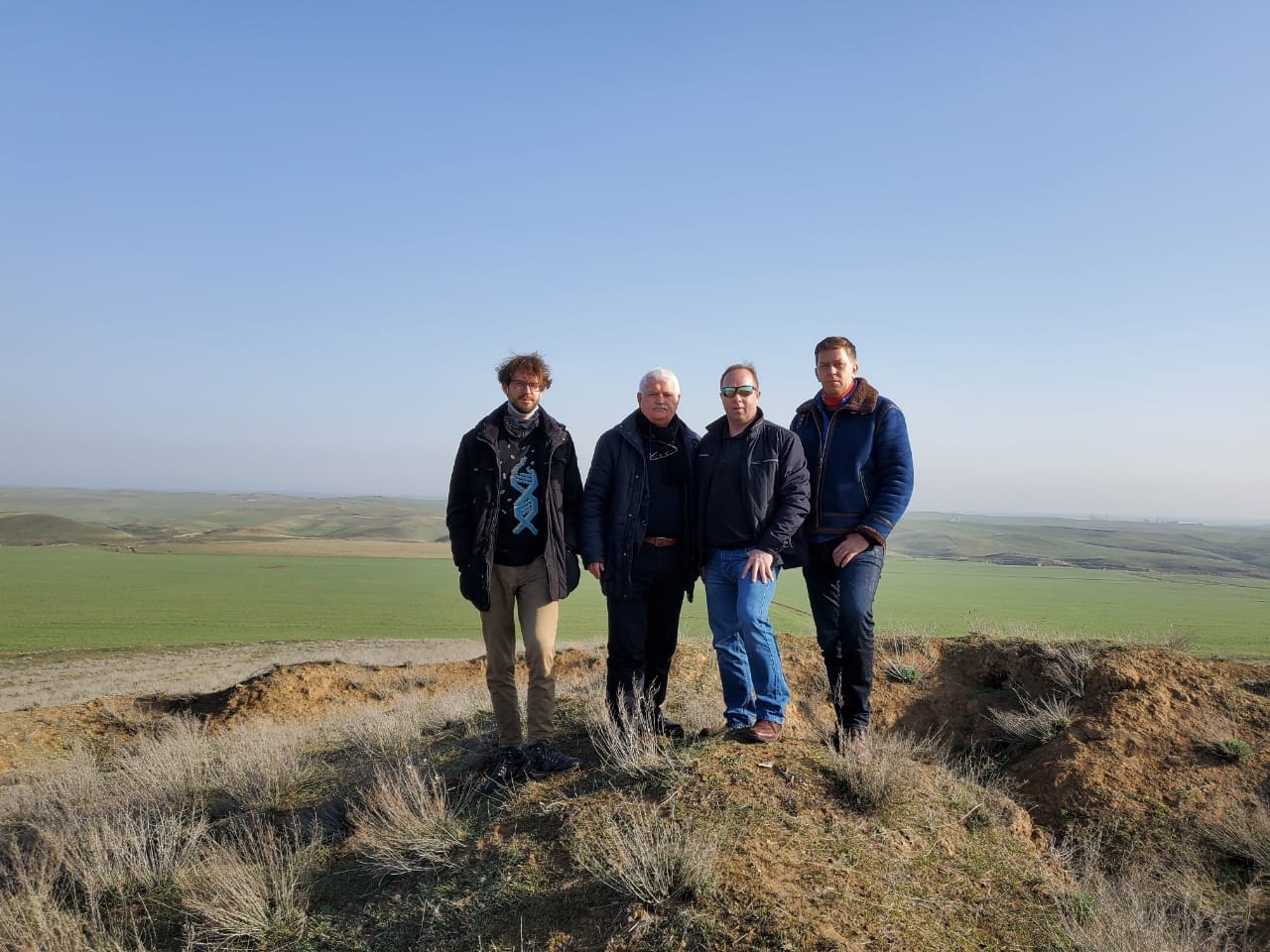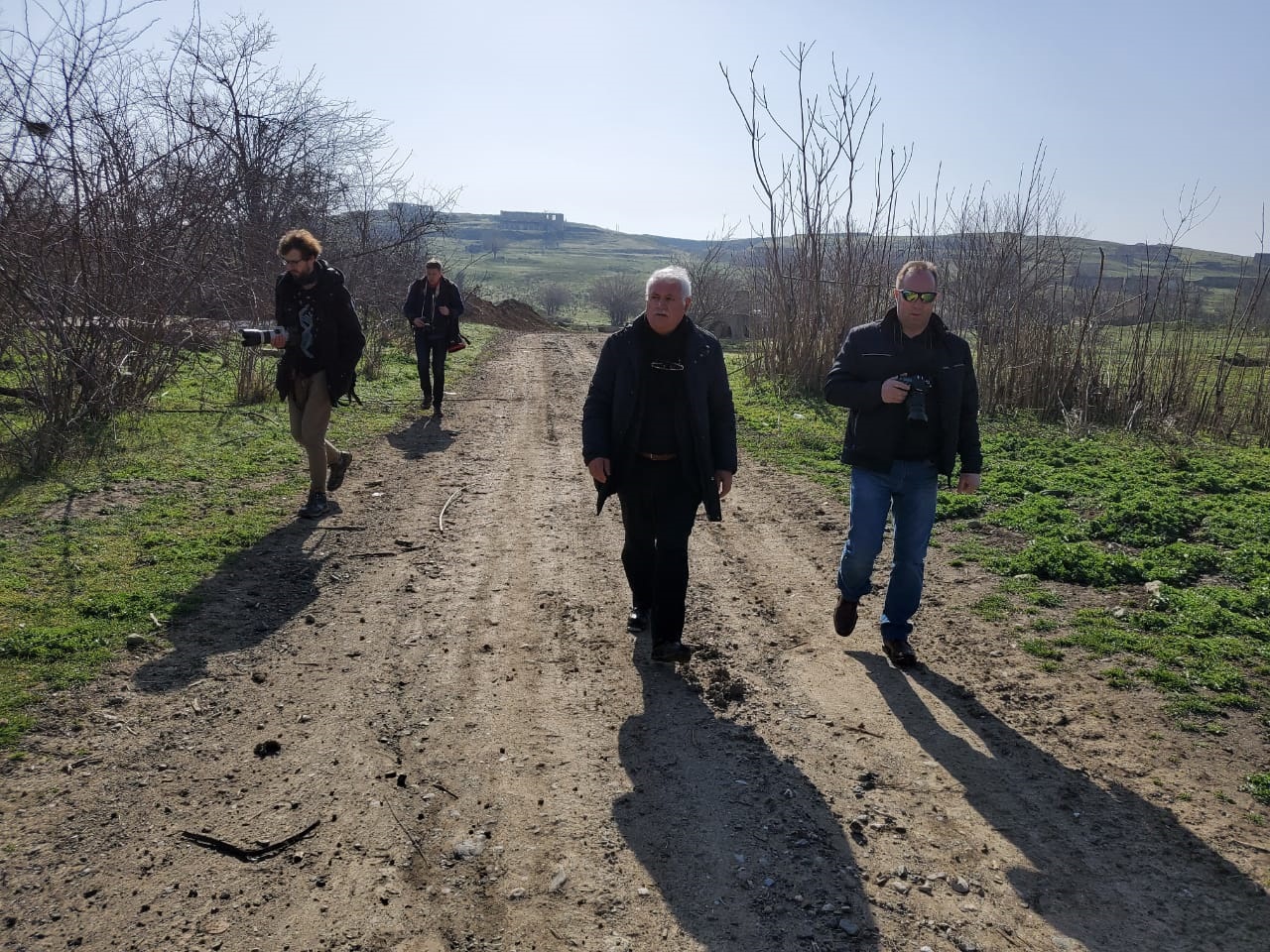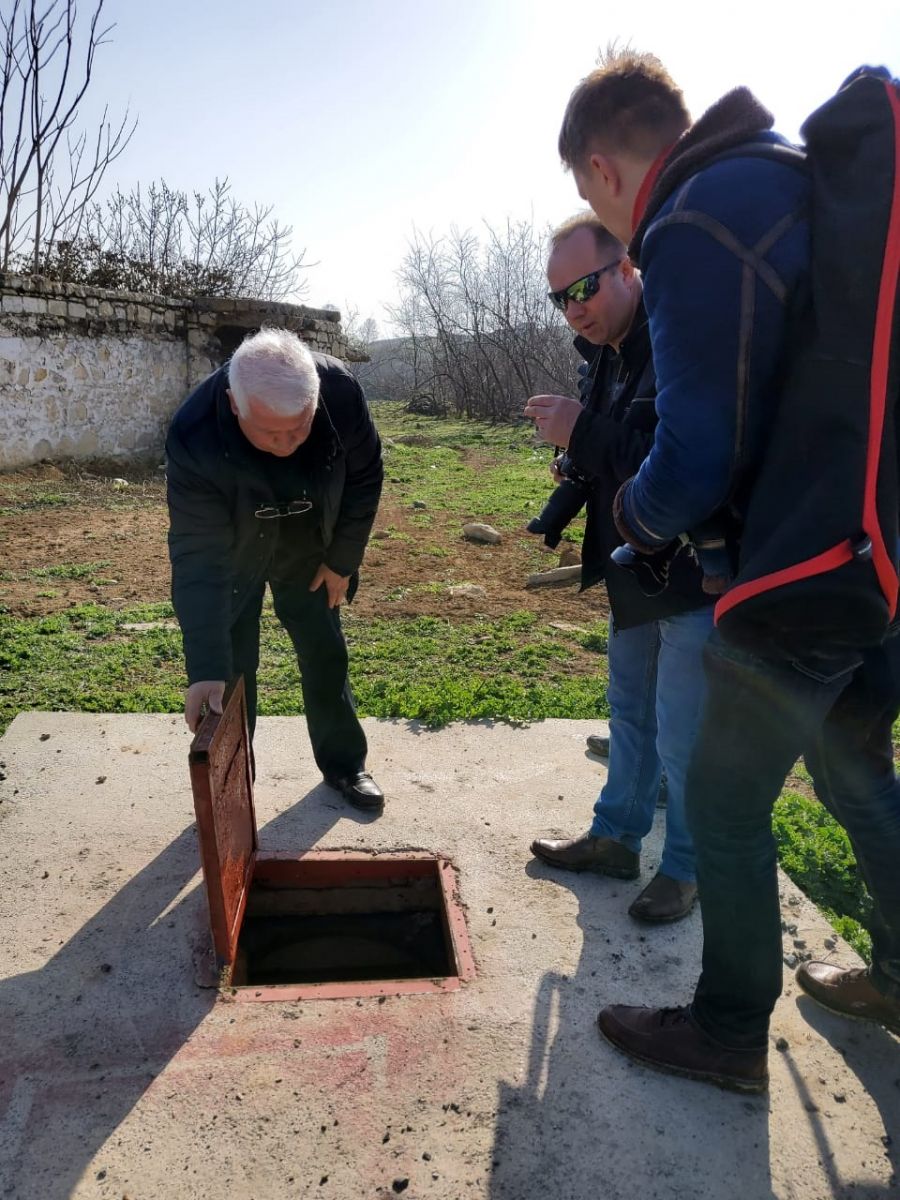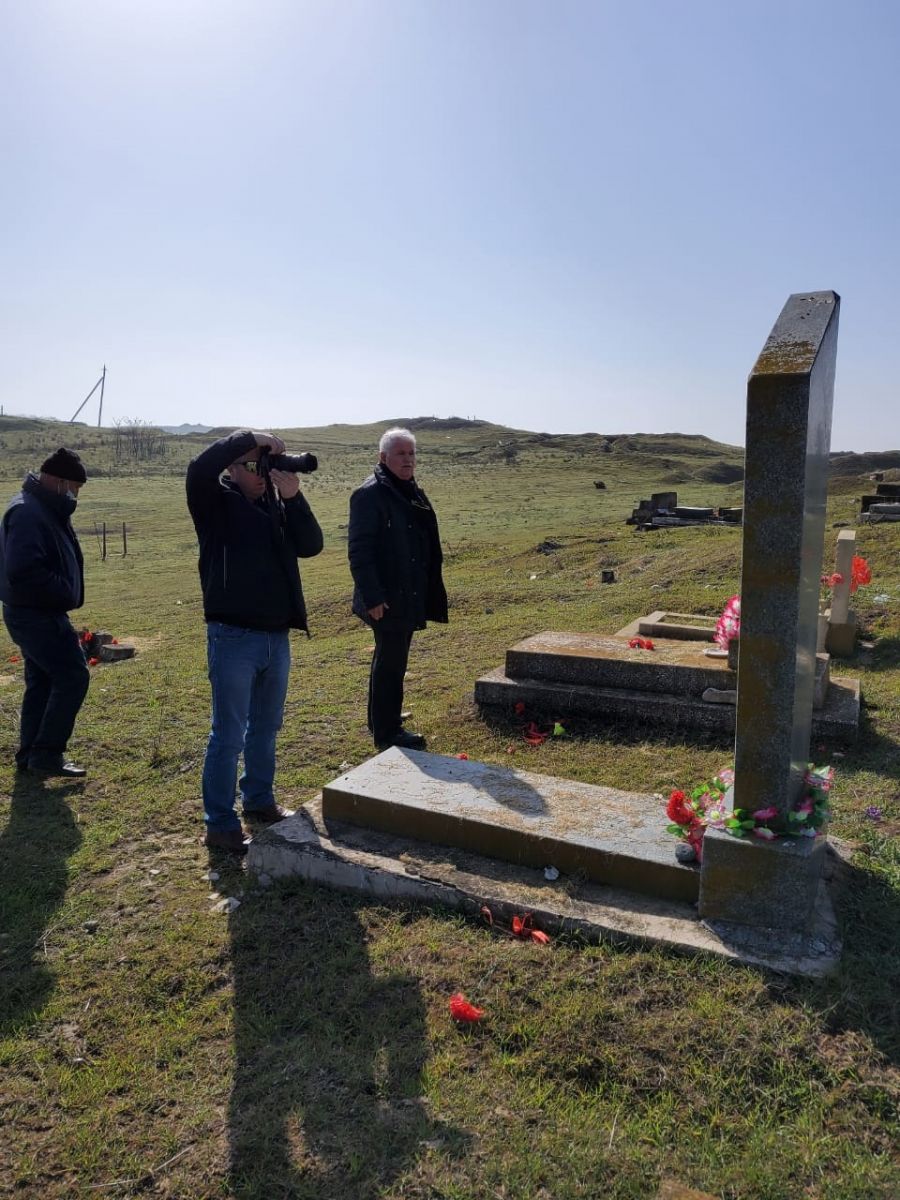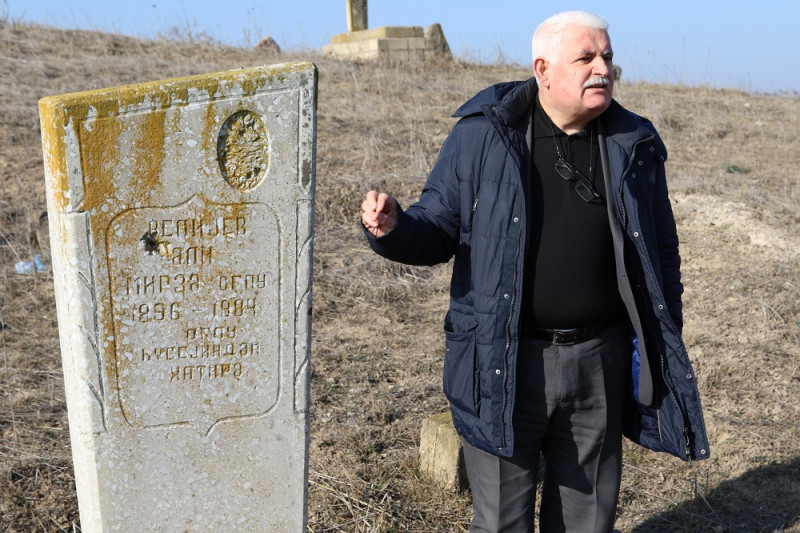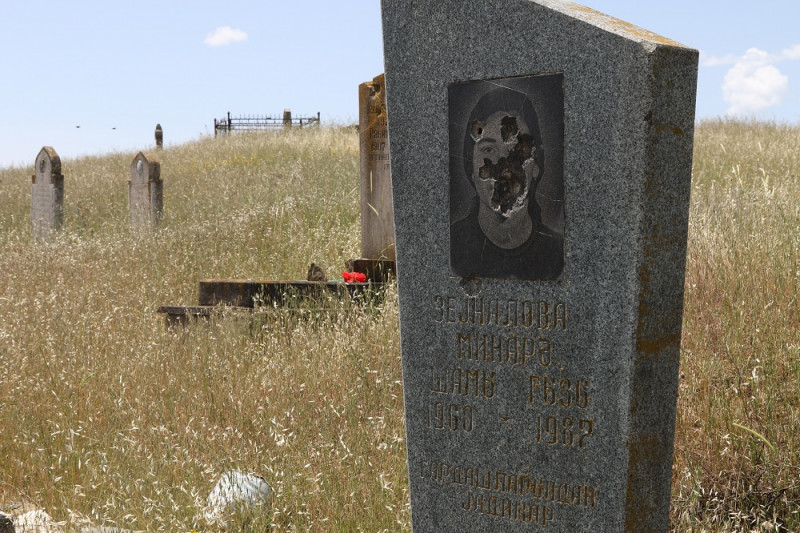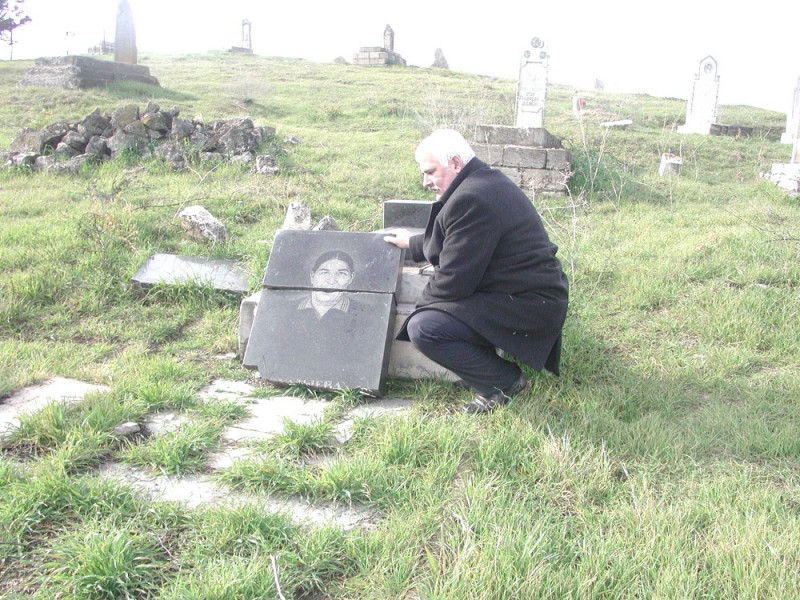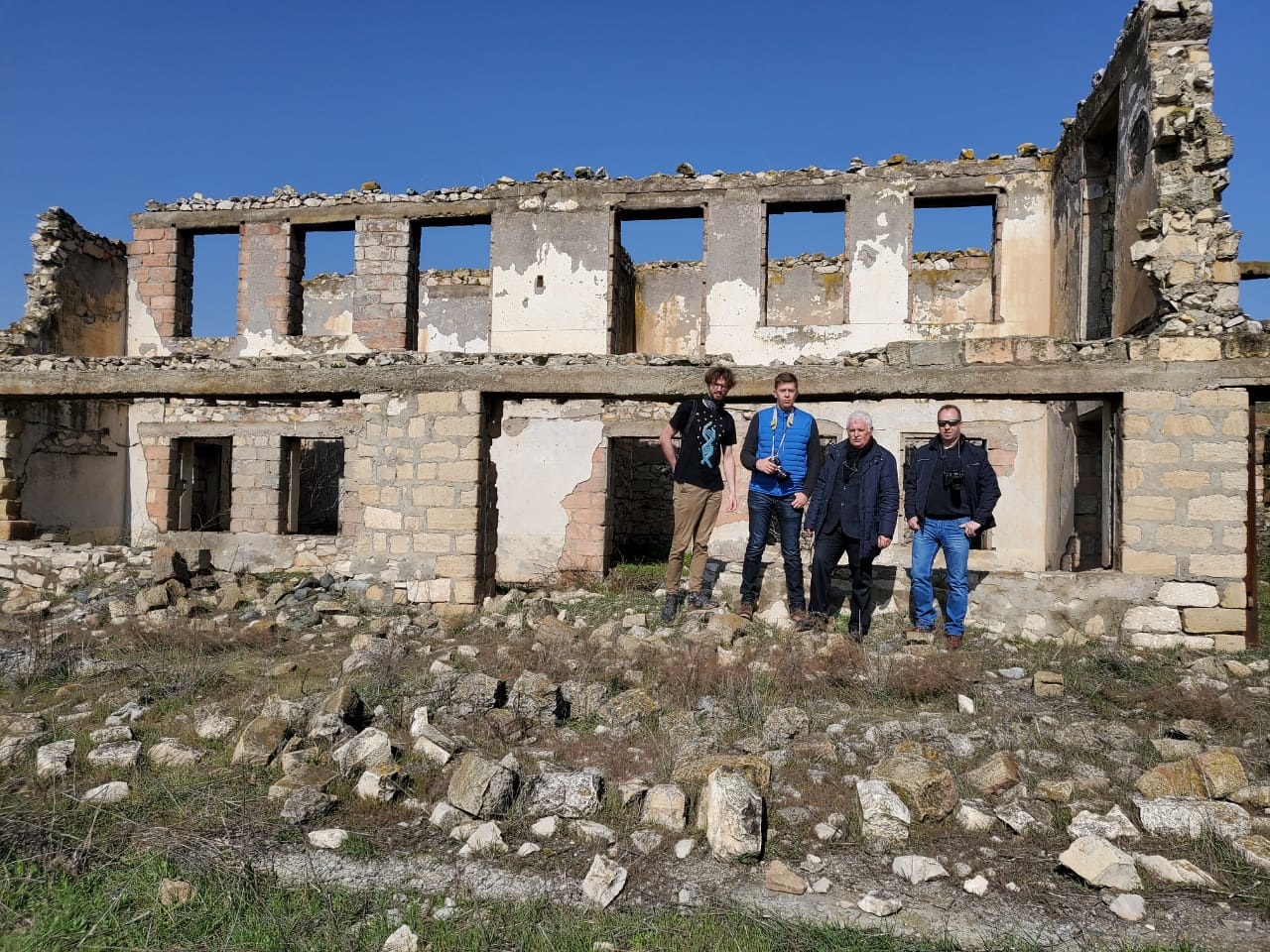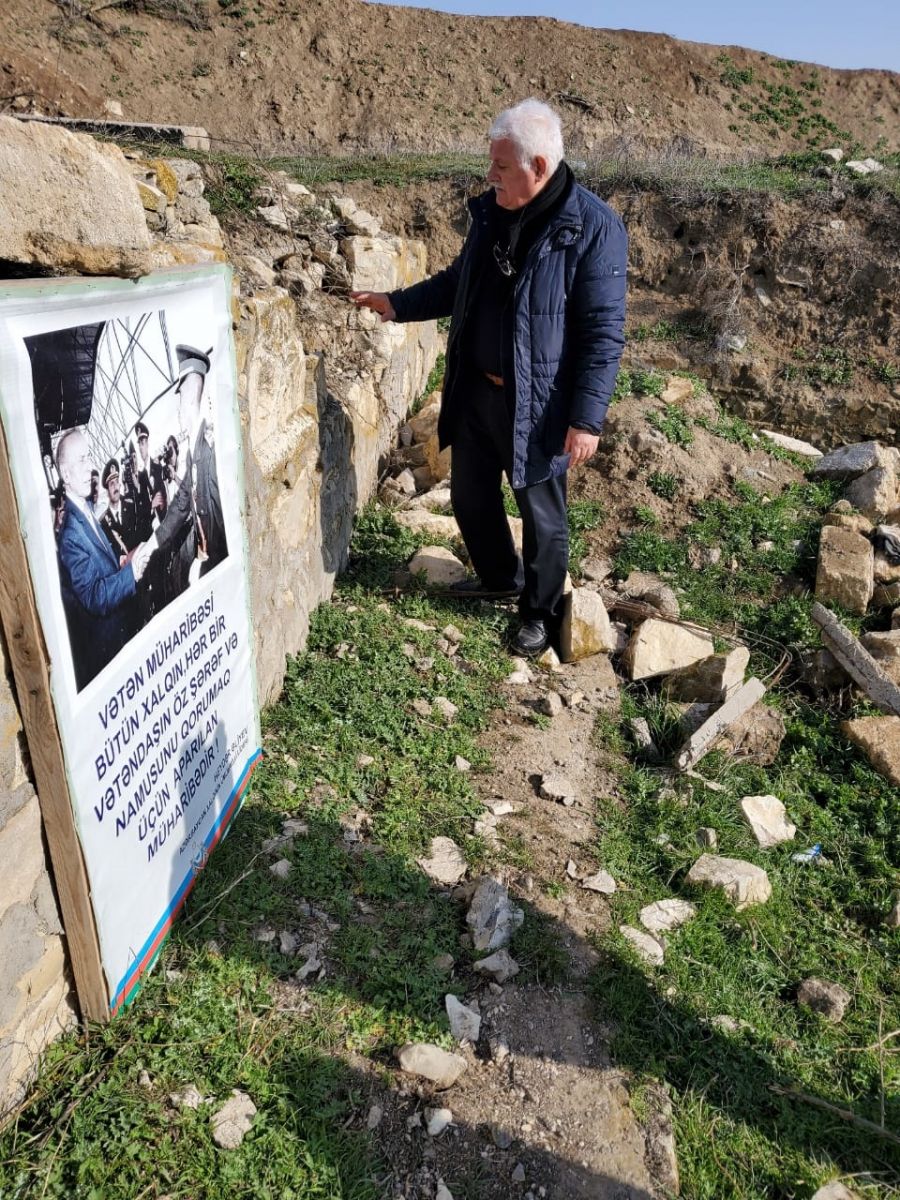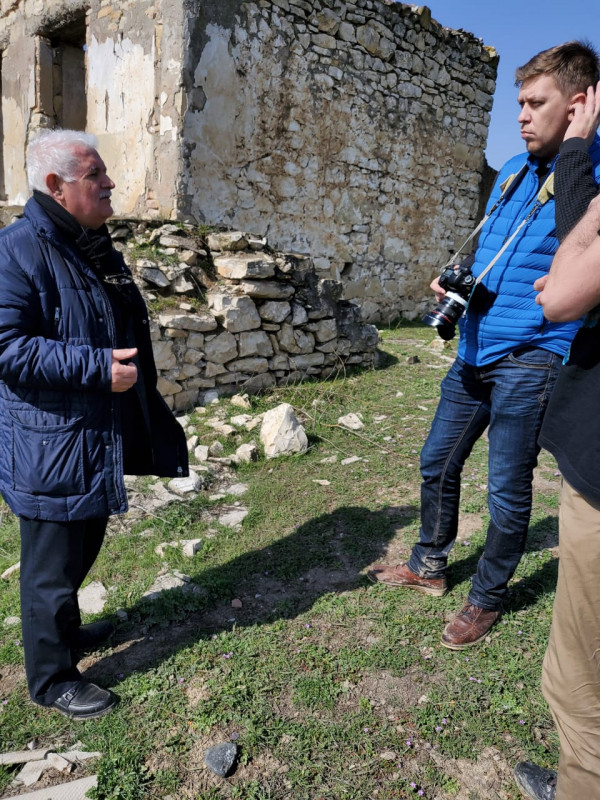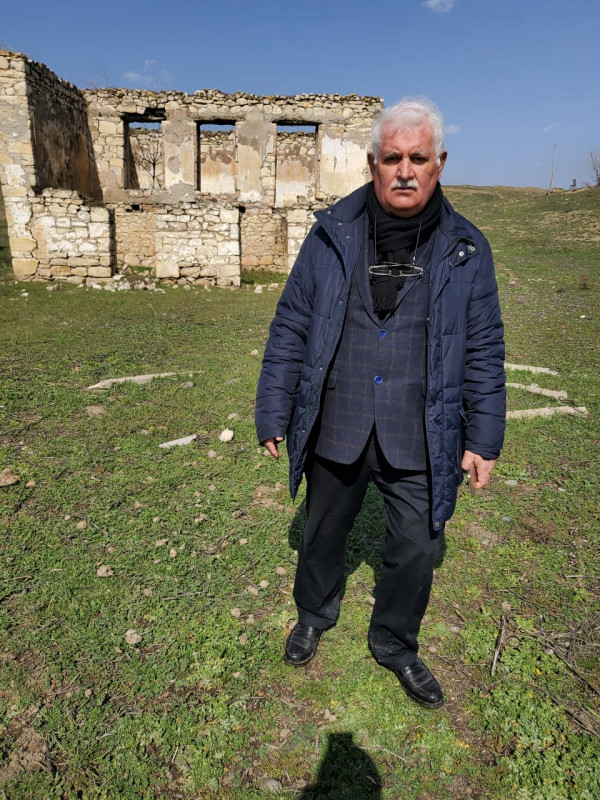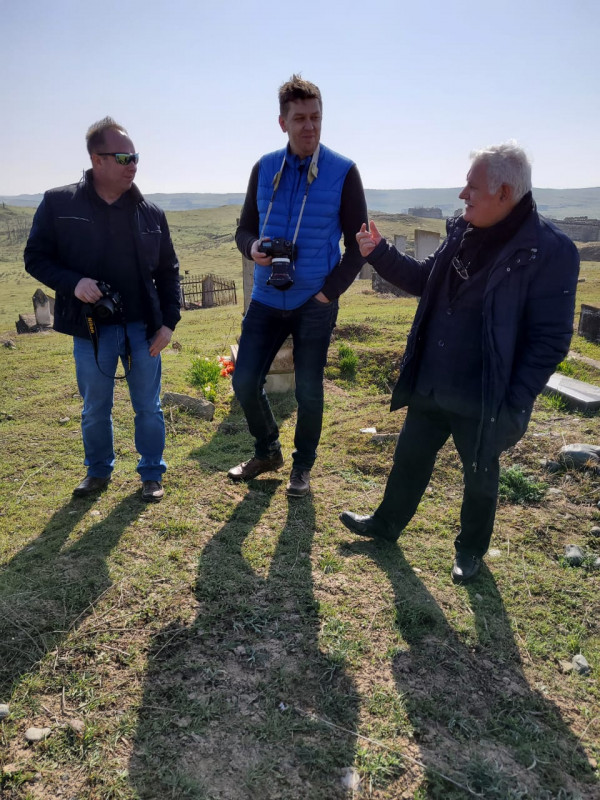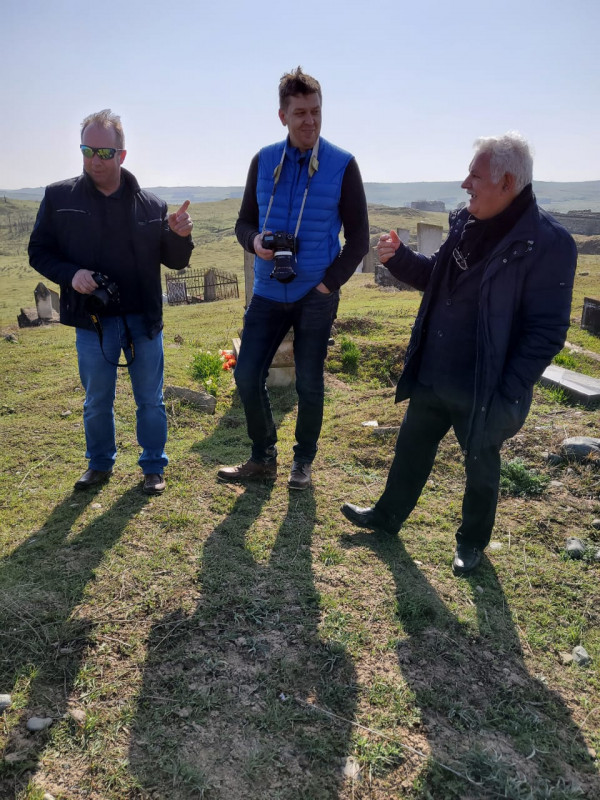On March 18, with the organisation of the International Eurasia Press Fund (IEPF) a group of Lithuanian journalists have paid a visit to the Fuzuli district.
There have been well-known journalists in the group, including a famous military journalist Richardas Lapaitis, who has been awarded the 'Order of Friendship' of the Republic of Azerbaijan, Arunas Sartanavichius and Mantas Bartasavichius.
According to Eurasia Diary, the guests have visited Ashagi Abdurrahmanli village of Fuzuli district. The village was almost on the line of contact before the libaration of the occupied territories. The village has been occupied by the Armenian armed forces on August 23, 1993. It has been liberated due to the Operation of Horadiz in January 1994.
At that time, the biggest bloody battles took place here. Armenians set fire to all houses in the village. The vast majority of the villagers could not get anything out of their homes. The school and the house of culture were completely destroyed.
Noting that in 2016, Arunas Sartanavichius and two other journalists have had a visit here at the invitation of the IEPF.
In 2016, Lithuanian journalists were able to reach the high hill in the photo
There are 17 kehriz (artesian) wells along the road in the village. Water came from those wells near the graves of the martyrs, and the villagers used this water. This monument has been destroyed during the war. The inscriptions and drawings in the ancient Arabic alphabet on the stones of Kahriz have been destroyed by Armenians. Kahriz wells have later been restored and their grooves will be restored soon.
Military journalist R.Lapaitis interviewed IEPF President Umud Mirzayev, who is originally from Ashagi Abdurrahmanli, in front of his devastated house. We are presenting the interview:
Richardas Lapaitis: “Dear Umud Mirzayev, you have lived the life of an IDP for many years. You had to leave here because the neighbouring Armenian separatists occupied this land. Today we see the repercussion of that occupation. In addition, your home is located here. How do you feel now as you you are next to your native house, where you have grown up and where your parents have lived 30 years ago? How do you feel when you look at the ruined tombs and these sacred stones that are precious to you?”
Umud Mirzayev: “It is sad and very painful to look at them. You said neighbours, of course we were neighbors. But what we saw in Aghdam and Fizuli districts... My village is very far from that neighbouring state. It takes at least 3-4 hours to get here from the Armenian border. This is unbelievable. Have they lost their minds that much? Well, admitting you accupy it. But why then insult the stones, the cemetery, the dead, the architectural monuments? Why burn this house? Why? I can not understand this. You are aware of the beginning of this conflict. You are a living witness of the Khojaly tragedy."
R. Lapaitis: My colleagues and I often visited Baku, your parents came from this beautiful place to "another" city and lived an IDP life with their children, starting from scratch. We have seen how the house was here. I remember when I went to your parents' house with you, you said that now they will ask the most difficult question. Your father asked, "When will we return home?" I remember the expression on your face. I wonder, looking at him, what did you promise in Azerbaijani? What was your answer to the most difficult question then?”
U. Mirzayev: “It was really the most difficult question. My father asked me this question every time he saw me. I was saying that peace talks are underway. Unfortunately, his dream remained in his heart and he left this world. On the verge of death, he asked my mother and brother to bury him at least in our Ashagi Abdurrahmanli village. He passed away on December 7, 2016. We buried him here at 8 pm on the 8th of December with the help of our servicemen under the lights of smartphones.”
R. Lapaitis: “We visited his grave. I knew your father personally. May he rest in peace. Thankfully, your mother is alive. When I visited your father's grave, I saw that many images on tombstones had been shot in the head and eyes. My Lithuanian colleagues asked how that happened. I said him the grave is sacred. But you know that they did this to living people. They took pictures of corpses. In 1992, 1993, and 1994, blind people were brought. In 1992, corpses were brought to Khojaly. And we were taking pictures of them. There were even survivors among them. My colleague asks why they did that? I also asked myself this question. I ask, why they perced the eyes of corpses? ”
U. Mirzayev: “There is no answer to this question. It is unbelievable and painful. It is an embarrassing act for mankind that needs to be underlined. They did it not only in my village, but everywhere. I used to think that maybe there were aliens came to my village. But Aghdam, Fizuli, Jabrayil, Lachin, Kalbajar, Gubadli, Shusha ... That is, the situation is the same everywhere. We just need to stop this terrible ideology. Sometimes I ask how prosperous this region would be without war. Now there are fortifications everywhere, military equipment everywhere, people have not used this wealth for 30 years. They just came and destroyed it, destroyed and sold it for some interest. Or they enjoyed it."
R. Lapaitis: “Dear Umud, how do you see the future of your native Ashagi Abdurrahmanli after this important moment in your life? I'm not just asking for your house. You pointed to the graves in the cemetery shwoing there were your teacher, uncle lying there. Will it be possible to restore the village? Because I see only destruction and barbarism.
U. Mirzayev: “You have just seen, we are restoring the kahriz. We will finish the work soon. We have drilled 17 wells. We will definitely finish soon. We will restore this house. We have a lot of memories with this house. If we lose what we have, there will be a second chance for us. We are trying to get every resident to return and rebuild their home. Maybe it will be demolished and will be built a new one in its place. Of course, we need a support from our state. And our state is interested in this work and will help. The intellectuals of our village will take part in the restoration work. InshaAllah (if Allah willing), when the work is completed, we will invite you and you will become our honorary citizen. Arunas, Mantas, who are with you here, and we are doing good work together. We will have good reports and films. I hope everything will be fine with this visit."
R. Lapaitis: "We believe and hope that everything will be fine here."


